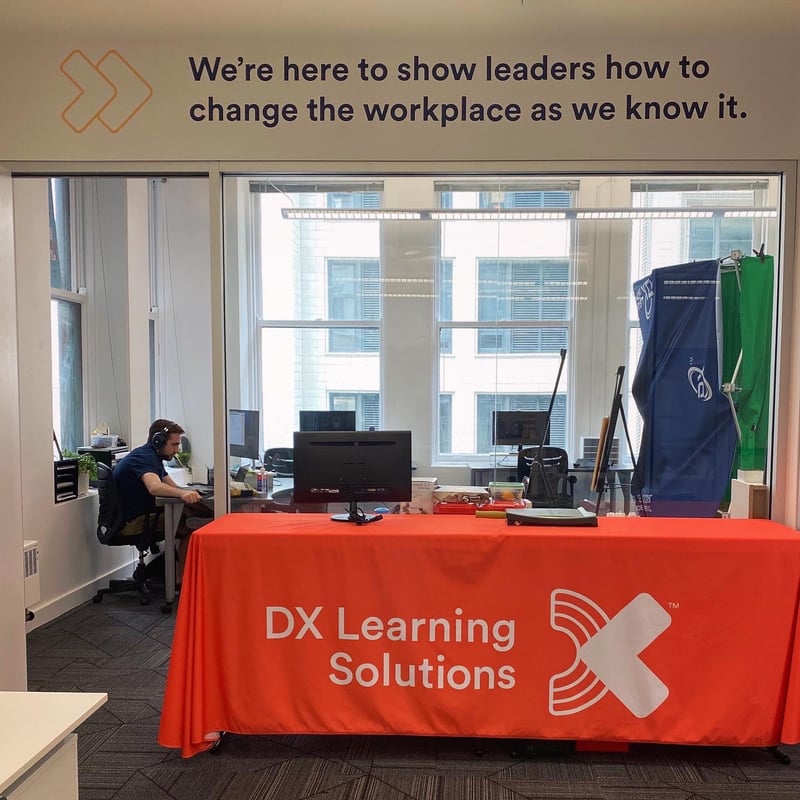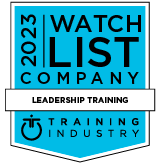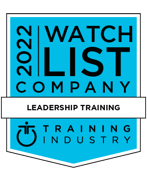Bring Your Organizational Values to Life

Contents
How many years have you dedicated to create your organizational values?
How many hours, weeks, months has it taken to nail down a strong set of leadership behaviors and principles that act as a guiding star for your people?
Most importantly, are your managers and team members truly living these values and behaviors? Are they talking a good talk, but not walking the walk?
Last year our organization spent a majority of the summer dedicated to crafting our mission statement, goals, and company values.
We used Patrick Lencioni’s book The Advantage as a guide and spent meeting upon meeting poring over the questions, "What we do? What does success look like for us? What do we strive to embody?".
It took hours of hard work and one or two disagreements, but we had it – clearly defined value statements that the entire team could rally behind.
Then we were faced with the question, "Now what?".
Bringing organizational values to life is hard, even when your company is dedicated to a people-first mindset.
It’s even more difficult to prioritize and put your culture into perspective when human capital is just one aspect of the many pieces that make your organization run.
Fortunately, there are a few concrete steps we can take to ensure company values are top of mind in all aspects of our organizations.

Put your values front and center.
It's impossible to embody what we don’t remember. We need to be proud of the organizational values we've worked so hard to identify and show them off!
Where do your people gather? Consider creating engaging posters outlining your values and posting them in conference rooms and gathering areas as a helpful reminder to your leaders.
In the DX office, we have put our mission statement above the entryway to our virtual training room. This way we always remember what we strive to embody before every meeting, design workshop, and program we facilitate.
We also created a wallet-sized pamphlet with our core values that we distributed to each team member for easy access, be it on their desk or in their wallet.
Having our values in plain sight, however, is just the first step. It's easy to assume that if it's in front of us, then we'll remember it; science says otherwise.
A 2013 UCLA study asked participants to recall the location of various items in a campus building they frequented, some who's offices have been in that building for over 25 years. Only 24% of participants could accurately recall where the nearest fire extinguisher was located.
This is because seeing is not the same as noticing. It's an issue of paying attention rather than relying on memory.
If attention isn’t brought to the item, we're not going to remember it.
This is why it’s important to put values front and center in both words and actions.
We need to talk about our organizational values, analyze them, and apply them to our meetings in order to integrate them into our culture and see them lived out by our leaders and teams.
At DX, every Monday morning team meeting starts with us reviewing our core values.
We call out "value moments" or actions took the previous week that embodied our core values. We identify which values overall we need to strengthen, such as smart-working, and which values we are most accomplished in and proud of, like being customer-centric.
As a result, our entire team knows our values forward and backward and are actively living them out in each of our projects.

Hire based on your values.
Organizations are more than just the physical locations, products created, or services provided. In their essence, organizations are all about the people who make them up.
The people we choose to have in our organizations will either be an integral part of the culture we're creating or they'll tear it down.
Organizational values need to be held in high esteem at the very beginning of any hiring process.
Dedicate time to identify questions or scenarios that help reveal the interviewee's internal values as well as their perspective of your organizational values.
Avoid asking obvious questions like, “What do you think about integrity?” or “How would you bring passion to this position?”.
Role-playing is a great way to identify how an interviewee could fit into your culture. Describe a scenario that mimics a real-life situation, and see how the individual responds.
For example, by role-playing a leadership scenario you can discover to what degree an interviewee values command and control type leadership versus empowering their team by asking for their perspective.

Create leadership development journeys that reinforce organizational values.
It’s easy to get caught up in coaching models, performance management journeys, and acronyms galore -- from situational leadership, to the speed of trust model, to the newest model that hits the market, or the next Simon Sinek or Brene Brown book.
To be honest, we don’t need more shiny new tools or models. We just need our people to act in ways that align with what our culture aspires to be.
Developing your people should be holistic and focused on your company values, not some outside content or a leadership buzzword.
It’s about you and your organization, not what some outside source thinks you should be focusing on.
So, how do we activate and enliven the values we've already created?
At DX, our CARE approach (Clarity, Autonomy, Relationships, and Equity) is designed to be easily mapped to your company culture, provide actionable steps, and empower teams to embody your values.
CARE is not another model, it's a mindset designed to bring your values to life in an actionable, memorable way.
Our programs nail down behavioral leadership changes needed to help your organization improve and your leaders to integrate your culture into their leadership.
Everyone needs a partner in crime when it comes to bringing their organizational values to life and CARE does just that.
Shaping company culture doesn’t happen overnight. It takes work to empower employees to live and breathe your values.
Team members that are presented with your messaging at every step, be it starting out, going about their workday, or moving up and developing their leadership skills, will integrate your culture values into who they are as employees and leaders.
Leadership development journeys help reinforce your values by answering the WHY behind them.
Why do we have these values? Why do I need to behave this way? Why do I need to think beyond just results?
Because it’s right. Because we are human. Because we CARE.
Insights

Subscribe to Our Monthly Newsletter!
For managers and talent professionals who truly believe in putting people first, the CARE to Win blog is your gateway to the latest insights on human-centric leadership. Join us as we champion the people first movement.
Need some time apart? Are we emailing you too often? Just give us your feedback, and we promise we’ll respond. We really do care. And if it’s still too much, just unsubscribe. It’s cool.
 Audrey Hebson
Audrey Hebson



